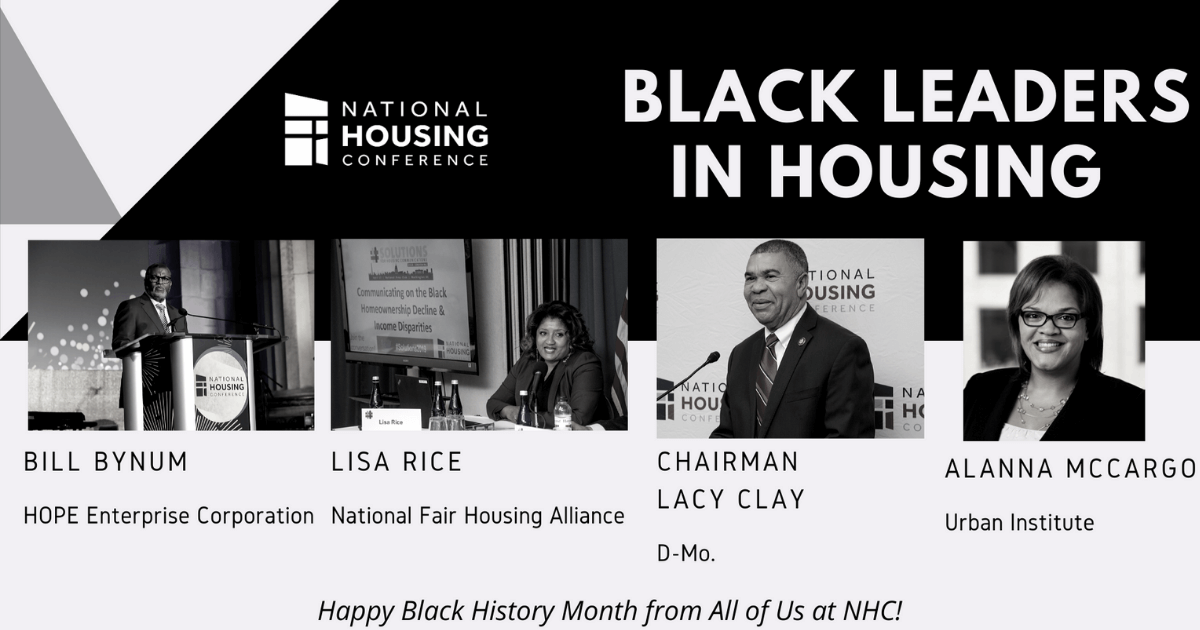
Black History Month traditionally focuses on the achievements of African American leaders of the past. This week, NHC is recognizing leaders making history today in housing policy, advocacy, research and community development. Diverse perspectives are essential to advancing affordable housing and are highly valued by NHC and our members. Some of these leaders include Maurice A. Jones of the Local Initiatives Support Corporation (LISC), Alanna McCargo of Urban Institute, Lisa Rice of the National Fair Housing Alliance, Bill Bynum of HOPE Enterprise, House Financial Services Committee Chairwoman Maxine Waters (D-Calif.) and the committee’s Housing, Community Development and Insurance Subcommittee Chairman Lacy Clay (D-Mo.).
Housing Policy
Chairs Waters and Clay have dedicated their lives to public service and are leading political forces on housing affordability and closing the racial homeownership gap.
On May 8, 2019, the House Financial Services subcommittee held a hearing on minority homeownership. Chairwoman Waters made clear that “the racial gap in homeownership represents a failure to remedy decades of explicit government-sponsored discrimination in our housing markets.” Chairwoman Waters has been a leading advocate for affordable housing throughout her more than 40 years of public service.
NHC was honored to have Chairman Clay speak at our Advocacy Day on Dec. 4, where he emphasized his commitment to “exposing and attacking the insidious and racist practice of redlining in minority neighborhoods.”
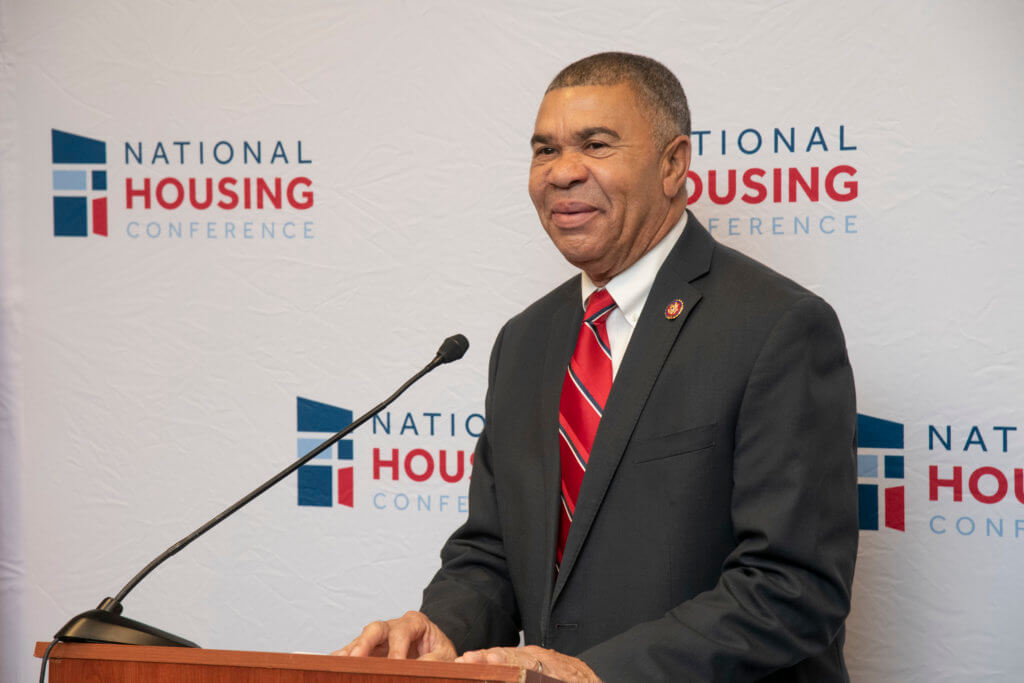
Housing Research
Reliable and credible research is vital to effectively advocating for solutions to housing’s most challenging issues. One of the most vexing has been the black homeownership gap, which has grown dramatically over the past 10 years. Alanna McCargo, vice president for housing finance policy at the Urban Institute, has been a leading force behind shaping the data around this pervasive issue.
Ms. McCargo is a leading voice on housing affordability and homeownership and her research informs the work of nearly every policymaker in Washington D.C. Recently, she has explored the important role black Millennials can play in helping close the homeownership gap. Her research not only makes the case for marketing to this important demographic, it has informed housing leaders on where to target potential first time homebuyers.
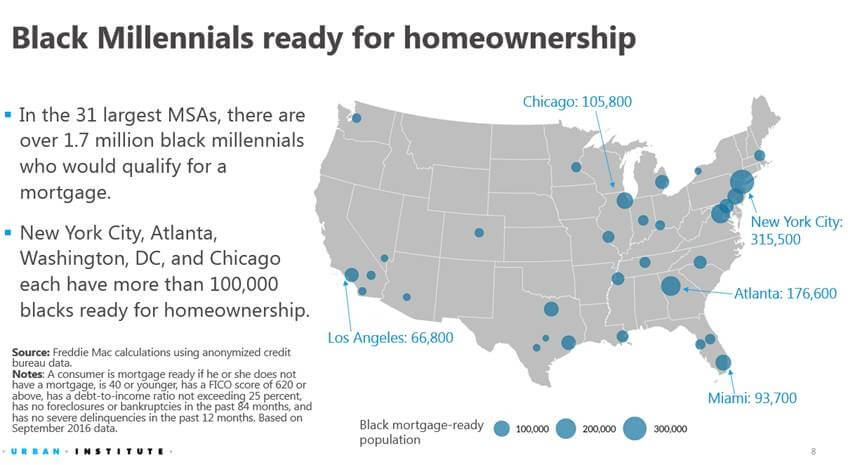
Housing Advocacy
Anyone engaged in fair housing in America knows the work and influence of Lisa Rice. As executive director at the National Fair Housing Alliance (NFHA), she works tirelessly to advance fair housing principles and to preserve and broaden fair housing protections, expanding equal housing opportunities for millions of Americans. Ms. Rice has helped lead teams that have investigated, brought, and resolved precedent-setting fair housing cases resulting in the elimination of systemic discriminatory practices in the areas of lending, appraisals, insurance, rental, and real estate.
Her critical work on the Dodd-Frank Act and the creation of the Consumer Financial Protection Bureau has ensured that fair lending is a central focus of regulators and lenders.
Most recently, Ms. Rice has worked diligently to protect the Affirmatively Furthering Fair Housing (AFFH) Rule, as the Trump administration moves to roll back this regulation. AFFH was enacted in 2015 as a provision of the Fair Housing Act to end all discrimination in housing. You can join Lisa in the fight here.
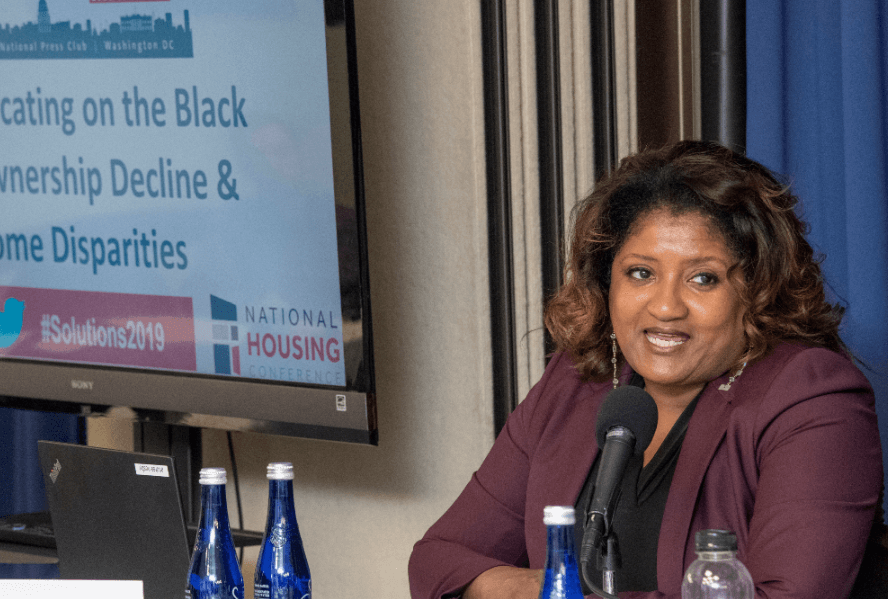
Community Development
When it comes to giving back to disenfranchised communities, HOPE Enterprise Corporation CEO Bill Bynum is a model for future generations of housing leaders. Living in Mississippi, Mr. Bynum knows firsthand how African Americans have been disproportionately shut out of achieving homeownership.
“In Mississippi, America’s poorest state, people are more likely to be turned down for a mortgage than anywhere else in the country. This disproportionately affects our most vulnerable residents. For example, in Mississippi, a Black mortgage household earning more than $150,000 is more likely to be denied a mortgage loan than a white applicant who earns less than $50,000,” he explained.
Last year, NHC honored Mr. Bynum at our 47th Annual Housing Visionary Awards Gala for his contributions to provide economic opportunities to help improve lives in Alabama, Arkansas, Louisiana Mississippi and Tennessee.
HOPE Enterprise has generated more than $2.5 billion in financing that has benefited more than one million people in one of the nation’s most impoverished regions.
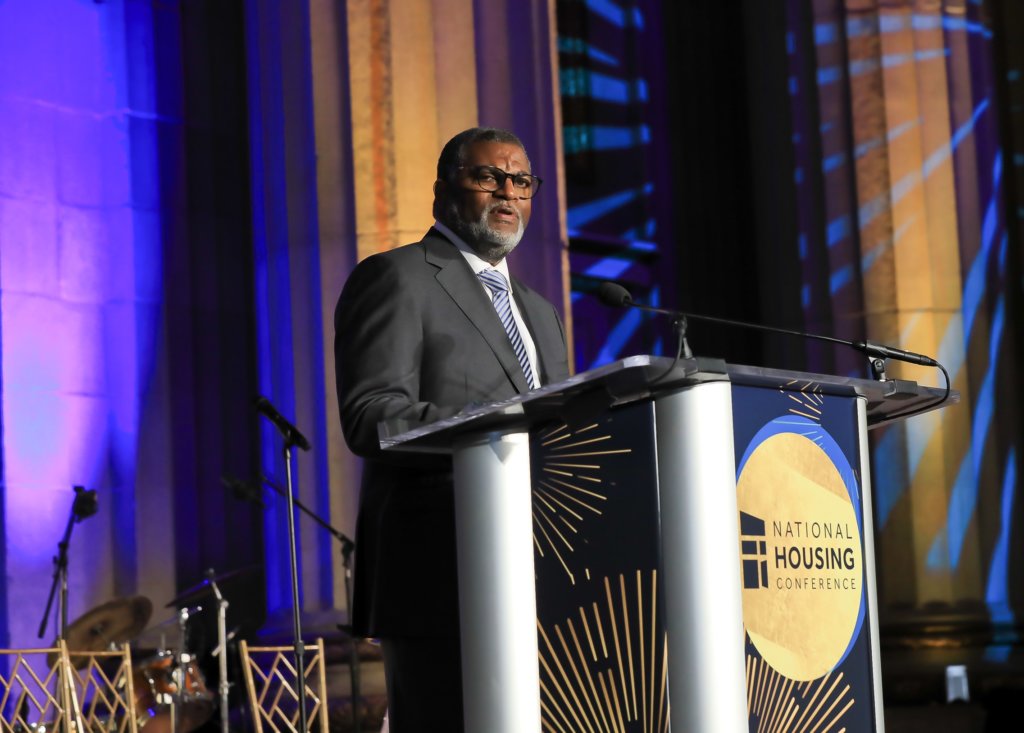
In September 2016, Maurice A. Jones was appointed president and CEO of the Local Initiatives Support Corporation (LISC), one of the country’s largest organizations supporting projects to revitalize communities. It’s only the latest in a lifetime of service that includes his leadership as Deputy Secretary of the Department of Housing and Urban Development during the Clinton administration.
Growing up in rural Virginia contributed to his passion for in housing and community development. “Growing up in a modest rural setting as a farmer introduced me to most of the issues in this field, housing, economic development, local capacity, and education,” he shared.
LISC prides itself on forging resilient and inclusive communities of opportunity across America. Their initiatives have included work in advancing education, affordable housing, health and more.
“Because housing is a vehicle of opportunity. The same is true of community development. ZIP codes are the biggest determinants of life expectancy, for example. If we can get housing and community development right, we can literally contribute to folks living longer, more productive lives.”
In 2018, Mr. Jones moderated a panel on Opportunity Zones at our Solutions for Affordable Housing convening.
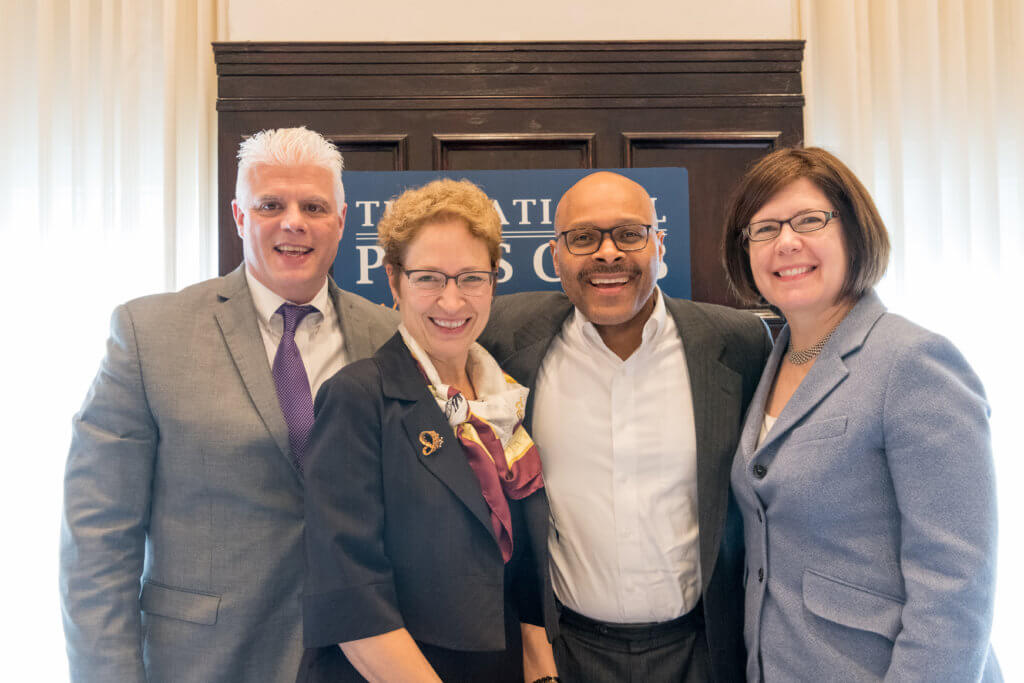
NHC is thankful for all the work, passion and expertise these leaders provide to advance housing and economic opportunities.
Andrea Nesby is a sr. communications and marketing associate at the National Housing Conference (NHC).

